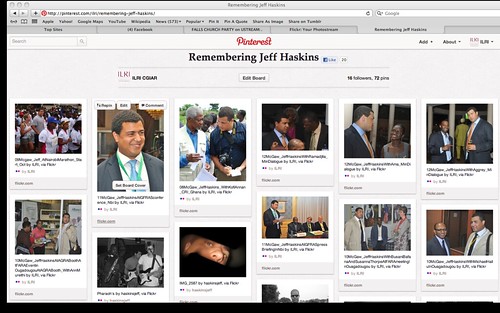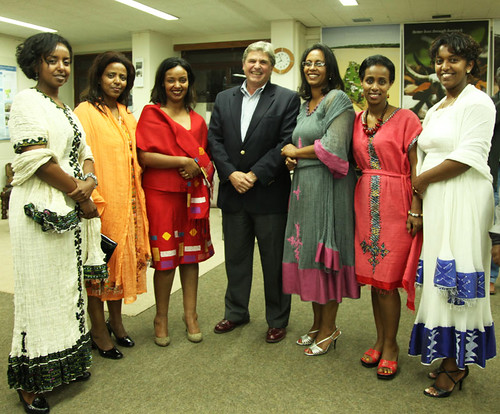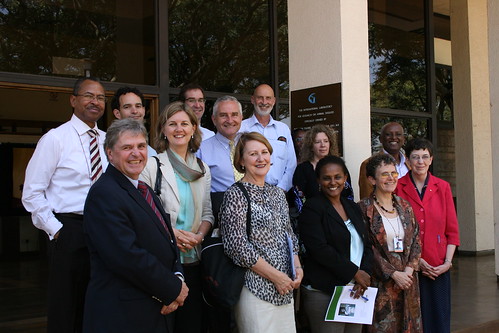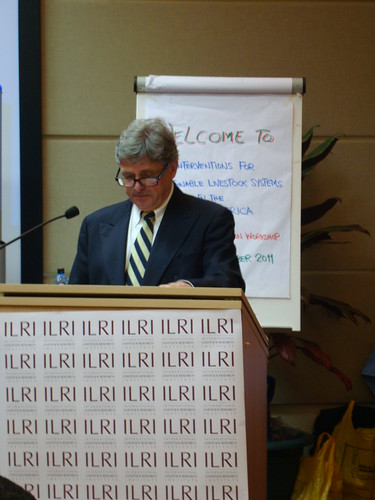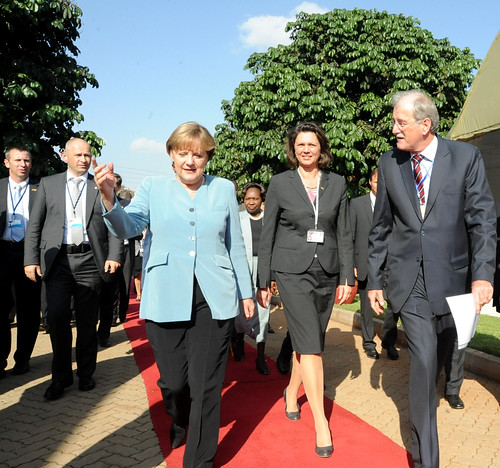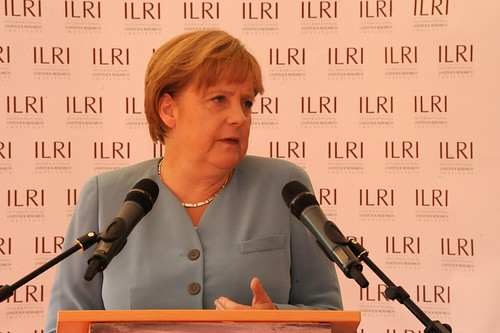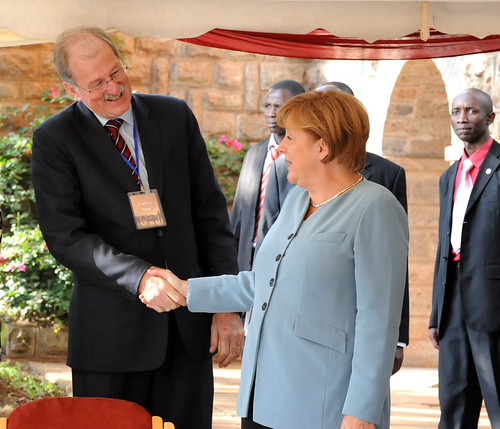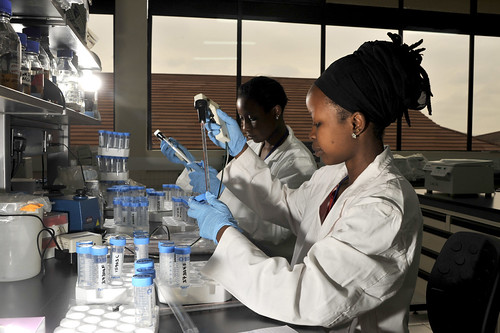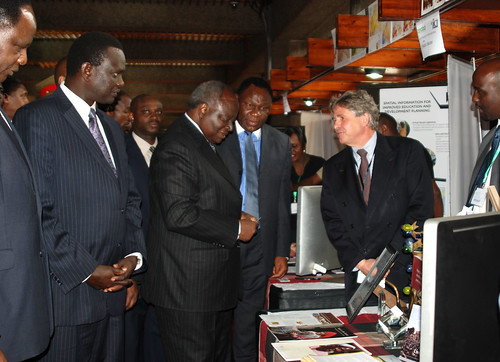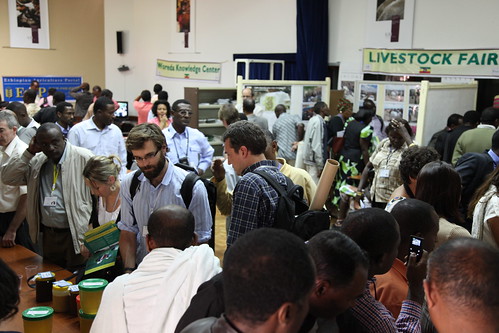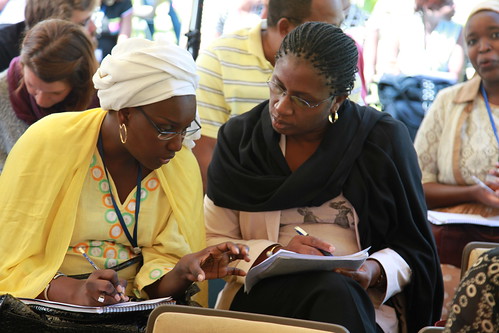JEFF HASKINS
Last month, we at the International Livestock Research Institute (ILRI) and within CGIAR and the wider agricultural development communities grieved over the sudden loss of American media guru Jeff Haskins, who had spent six years in Africa covering African agriculture news stories for the American PR firm Burness Communications. Haskins, who had just turned 32, died at the Kenya coast on 14 Jul 2012. See online tributes to him from the ILRI News Blog (with links to 25 major news releases and 20 major opinion pieces that ILRI produced with the help of Jeff and his Burness team over the last five years), Pictures of Jeff Haskins (ILRI Pinterest Board), Pictures by Jeff Haskins (ILRI Pinterest Board), Burness Communications Blog, Global Crop Diversity Trust, CGIAR, International Center for Tropical Agriculture, La Vie Verte and Jeff Haskins Facebook page.
MAPPING ZOONOSES
Before his untimely death, Jeff Haskins in early Jul orchestrated major and widespread media coverage of a groundbreaking report by ILRI revealing a heavy burden of zoonoses, or human diseases transmitted from animals, facing one billion of the world’s poor. Some 60 per cent of all human diseases originate in animal populations. The ILRI study found five countries—Bangladesh, China, Ethiopia, India and Nigeria—to be hotspots of poverty and zoonoses. The study also found that northeastern United States, Western Europe (especially the United Kingdom), Brazil and parts of Southeast Asia may be hotspots of ‘emerging zoonoses’—those that are newly infecting humans, are newly virulent, or have newly become drug resistant. The study, Mapping of Poverty and Likely Zoonoses Hotspots, examined the likely impacts of livestock intensification and climate change on the 13 zoonotic diseases currently causing the greatest harm to the world’s poor. It was developed with support from the United Kingdom’s Department for International Development (DFID).
An opinion piece by the main author of the study, ILRI veterinary epidemiologist Delia Grace, wearing her hat as a member of the Dynamic Drivers of Disease in Africa Consortium, appeared this Jul in The Guardian‘s Poverty Matters Blog.
ILRI AWARD
Azage Tegegne, of ILRI and the Improving Productivity and Market Success of Ethiopian Farmers (IPMS) project, was awarded an honorary doctorate of science degree by Ethiopia’s prestigious Bahir Dar University.
ILRI STAFF
ILRI bid goodbye to Bruce Scott, who served ILRI as a director for 13 years, the last decade as director of ILRI’s partnerships and communications department. Bruce is moving only down the road in Nairobi, from Kabete to Westlands, where he is taking up the position of deputy director of a new initiative of Columbia University (USA): Columbia Global Centers ⁄ Africa.
ILRI & FODDER AT RIO+20
We compiled links to ILRI inputs to the Rio+20 conference, including how to ‘turn straw into gold’ with dual-purpose crop residues and, with the International Center for Tropical Agriculture (CIAT), how livestock feed innovations can reduce poverty and livestock’s environmental ‘hoofprint’.
POLICY BRIEF
ILRI produced a policy brief on ‘Preventing and controlling classical swine fever in northeast India‘.
VIDEO INTERVIEWS
We film interviewed ILRI director general Jimmy Smith on ILRI’s evolving new livestock strategy and on ILRI’s role in providing evidence about the ‘bads’ as well as ‘goods’ of livestock production, marketing and consumption. And we interviewed ILRI scientist Joerg Jores on his research results, which, as reported in Scientific American, show that the pathogen that causes cattle pneumonia (CBPP) arose with domestication of ruminants ten thousand years ago, but only ‘heated up’ and began causing disease relatively recently.
VIP VISITORS
An Australian contingent visited ILRI this month and launched a new initiative, the Australian International Food Security Centre, to improve food security in Africa. The centre, which falls under the Australian Centre for International Agricultural Research (ACIAR), will spend USD33.8 million over four years to support food production in Africa as well as in Asia and the Pacific region.
PROJECT NEWS
We reported on the signing of a memorandum of understanding by ILRI and Korea‘s Rural Development Authority (RDA) for laboratory work in Kenya, innovative platforms in an imGoats project in India and Mozambique, and training sessions on controlling zoonoses conducted by the Vietnamese members of an ILRI-led project known by its acronym EcoZD (‘Ecosystem Approaches to the Better Management of Zoonotic Emerging Infectious Diseases in Southeast Asia’).
SELECTED RECENT PRESENTATIONS
Azage Tegegne Livestock and irrigation value chains for Ethiopian smallholders (LIVES) project, Addis Ababa, Jun (256 views).
Danilo Pezo Smallholder pig value chain development in Uganda, Wakiso, Jun (1186 views).
Derek Baker Livestock farming in developing countries: An essential resource, World Meat Congress, Paris, Jun (874 views).
Derek Baker Interpreting trader networks as value chains: Experience with Business Development Services in smallholder dairy in Tanzania and Uganda, ILRI Nairobi, Jun (1879 views).
Peter Ballantyne Open knowledge sharing to support learning in agricultural and livestock research for development projects, Addis Ababa, Jun (1589 views).
John Lynam Applying a systems framework to research on African farming systems, CGIAR drylands workshop, Nairobi, Jun (1884 views).
Bernard Bett Spatial-temporal analysis of the risk of Rift Valley fever in Kenya, European Geosciences Union Conference, Vienna, Apr (1164 views).
Nancy Johnson The production and consumption of livestock products in developing countries: Issues facing the world’s poor, Farm Animal Integrated Research Conference, Washington DC, Mar (542 views).

